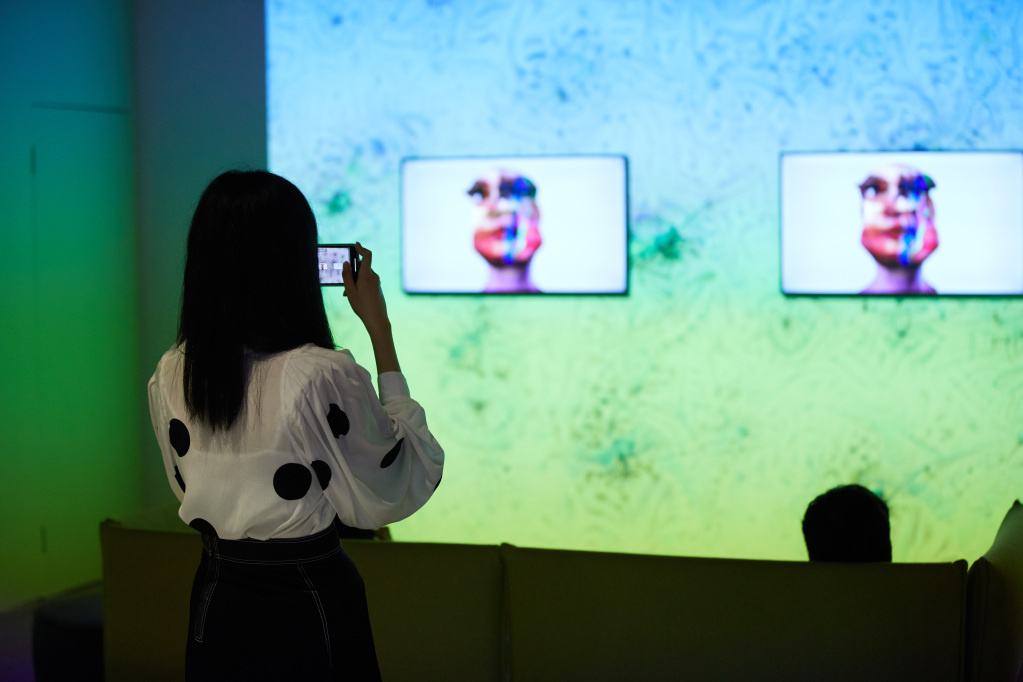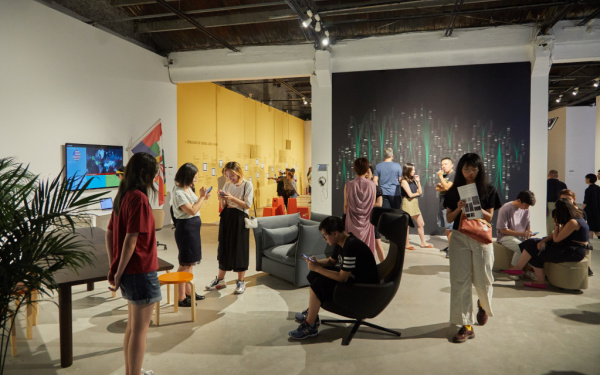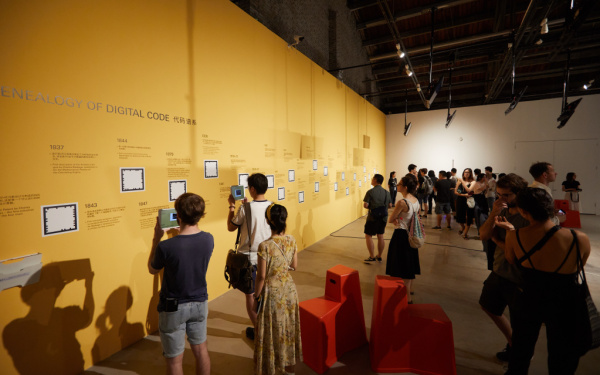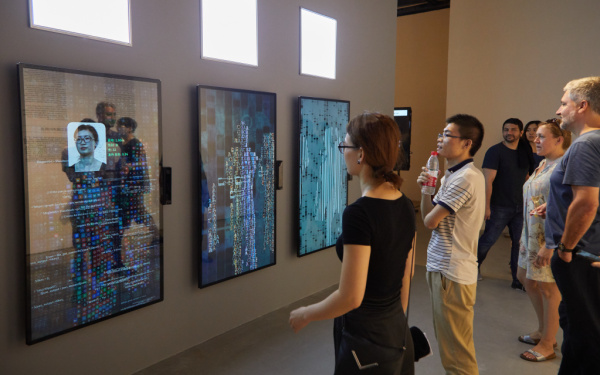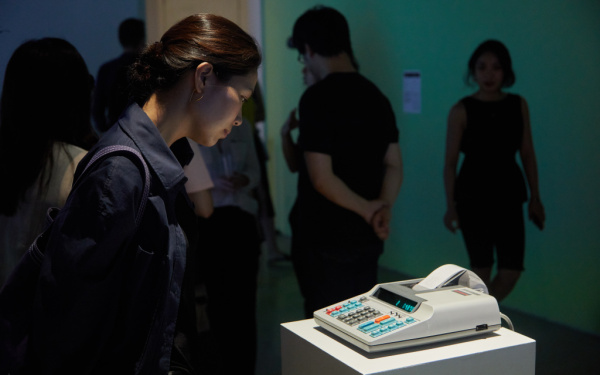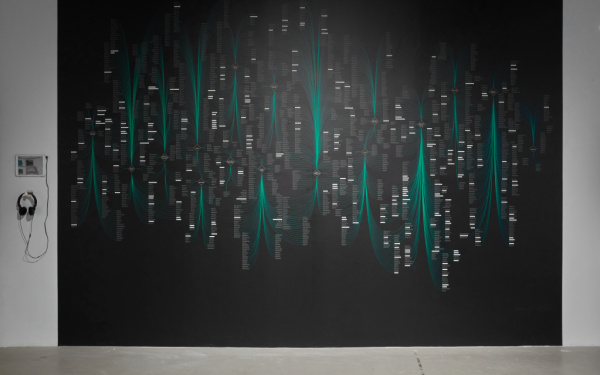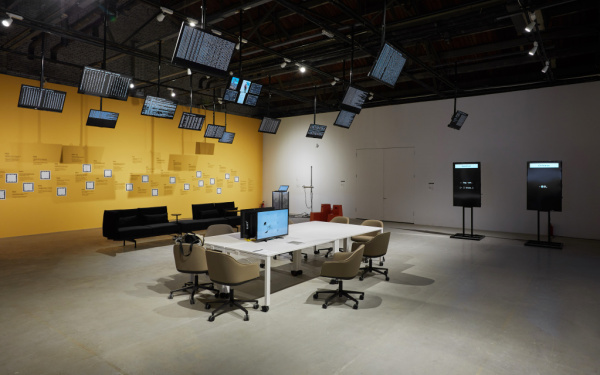Open Codes. Connected Bots
Sat, July 20 – Mon, October 07, 2019
- Location
- Chronus Art Center Shanghai
The exhibition and educational project »Open Codes« reflects on the world we live in today; a world that is created and controlled by codes. It can now be seen at the Chronus Art Center in Shanghai.
»Open Codes« brings computing and art together in various ways. It is a new form of assembly, combining practical knowledge of computer code and critical artistic approaches in a single venue. The project seeks to empower its participants to regain access to reality through instruments of thought and to reflect on the genealogy and current social impact of digital code, computer programing, and software.
The current iteration of this project at the Chronus Art Center focuses on the affective resonance of algorithms and the reciprocal, perceptual entanglements of computational simulacra and physical reality. The ability to navigate the world of code, hand in hand with digital literacy, are essential to contemporary society in the age of planetary-scale computation, especially when algorithmic agents are designed to influence public opinion.
Virtual software agents, colloquially referred to as bots, run mostly repetitive tasks at a higher speed than humans ever could. Some specialize in conversations on online platforms, where they are programed to act like regular people. Social media bots are a product of the new economies of visibility and currently make up more than half of online traffic. Some bots can learn from us; others can spider the web to index content; further ones strive to alter our mindsets and are used in political campaigns, and others maliciously litter inboxes with spam.
The world bot derives from »robot«, first used by Karel Čapek in his 1920 science fiction novel, to describe a fictional humanoid. Robot became known as a word for autonomous machines, capable of carrying out complex tasks, that can be forced to work, as the meaning of the Czech word »robota« suggests. Robots, whether with or without a built body, are meant to provide services, much like the natural language conversation program, ELIZA, described by Joseph Weizenbaum in 1966. This early chatbot was in some users' opinion a better psychologist than its human alternatives. A couple of decades later virtual assistants, like Alexa, are not only capable of chatting, but of accomplishing more complex tasks, and are now as mundane as a hairdryer in certain parts of the world.
Countless experiments and actual applications of binary-based human substitutes are now in use. Despite their advantages, these tools come at a price – the seamless operation of a virtual assistant obscures cumbersome human labour. Chatbots aggregate knowledge from their conversations with users, who do not necessarily represent society as a whole, thus their statements often repeat racist or sexist opinions and may reinforce the kinds of social exclusion they have been fed with.
Whether they play music, mine bitcoin, or chat with us, the bots’ influence grows. As a consequence of this development, we might ask if we are becoming bots ourselves? As we sit ina stylish co-working space in front of a computer, bots are influencing our decisions. Algorithms numb human agency to a shocking degree, with inevitable implications for perception, memory, and social interactions, whether with bots or among ourselves. Human dependency on computation has become mutually reinforcing on multiple levels, going beyond binary oppositions. The exhibition includes artworks based on computer code, as well as artworks that reveal how deeply such code has penetrated our lives, societies, geopolitical situations, fiscal systems, labor conditions, infrastructure, environment, and even the perception of our own source code, DNA.
»Open Codes« is based on a concept by Peter Weibel and was shown at ZKM | Karlsruhe from October 20, 2017 to June 2, 2019. The satellite exhibition »Open Codes. Connected Bots« is a co-production of the Chronus Art Center in Shanghai and the ZKM | Karlsruhe.
Imprint
- Curator
- Curator
- Curator
